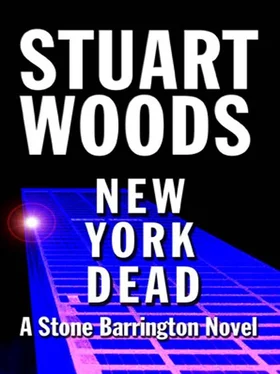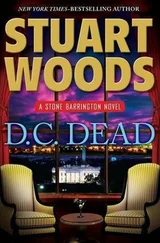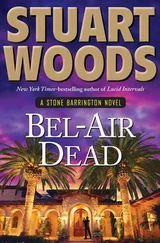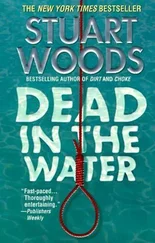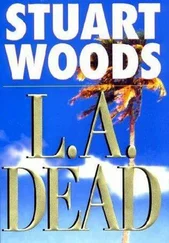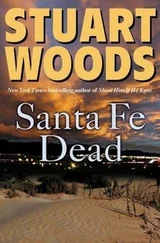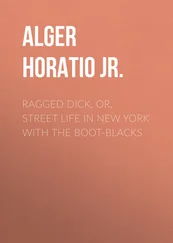“What’s the other kind of person?” Stone asked.
Barker grinned again, still looking at the river. “Whoever had the most to lose from Sasha’s future success,” he said.
“That’s an interesting notion,” Stone said, and he meant it. “Who did you have in mind?”
“I’ll tell you,” Barker said, turning to face him, “but if you ever quote me, I’ll call you a liar.”
Stone nodded. “It’ll be just between us.”
“Well,” Barker said, drawing it out. “There’s only one person in the world I can think of who would suffer from Sasha Nijinsky’s future success.”
“Go on,” Stone said.
“Her new co-anchor, who else? The estimable Mr. Barron Harkness, prizewinning television journalist, squarejawed, credible, terribly vulnerable Barron Harkness.”
“I take it you don’t like Mr. Harkness.”
“Who does, dear boy? He lacks charm.” Barker said this as if it were the ultimate crime. “Sasha would have blown him out of the water in less than a year. His ratings had slipped badly, you know – after a winning streak last year, he has slipped to a point or two behind Brokaw, Jennings, and Rather, and he’s still sinking. He’s already worked at ABC and NBC, and neither would have him back; and I know for a fact that Larry Tisch despises him, so that shuts him out of CBS. Then here comes Sasha, hipping him over at the anchor desk, loaded for bear. A power struggle began the day the first rumor hit the street about Sasha’s new job, and, if Harkness lost, where would he go? He’d be making solemn pronouncements on Public Radio, like Dan Schorr, and his ego would never accept that. No, sir, Barron Harkness is a man with a motive.”
“I think I should tell you,” Stone said, looking at his watch, “that Barron Harkness got off an airplane from Rome just about an hour ago.”
Barker’s face fell. “I’m extremely sorry to hear it,” he said. “But,” he said, brightening, “if I were you I’d make awfully sure he was really on that plane.”
“Don’t worry,” Stone said, “that’s been done. Tell me, would it violate some journalistic ethic if you gave me a list of the people you interviewed about Miss Nijinsky?”
Barker shook his head. “No. I’ll do even better than that; I’ll give you a paragraph on each of them and my view as to the value of each as a suspect.”
“I’d be very grateful for that.”
The writer turned sly. “It’ll have to be a trade, though.”
“What do you want?”
“When you find out what’s happened to Sasha and who is responsible, I want a phone call before the press conference is held.”
Stone thought for a moment. It wasn’t a bad trade, and he needed that list. “All right, you’re on.”
“It’ll take me a couple of hours.”
“You have a fax machine?”
Barker looked hurt. “Of course.”
Stone gave him a card. “Shoot it to me there when you’re done.” He got up.
Barker rose with him. “I’m having a few friends in for dinner this evening, as you can see,” he said, waving a hand at the dining room. “Would you like to join us?”
“Thanks,” Stone said, “but until I’ve solved the Nijinsky problem, there are no dinner parties in the picture.”
“I understand,” Barker said, seeing him out. “Perhaps another time?”
“Thank you,” Stone said. While he waited for the elevator, he wondered why Hi Barker would ask a policeman to dinner. Well, he thought, as he stepped from the elevator into the lobby, if he solved this one, he would become a very famous policeman.
As it turned out, he didn’t have to wait that long. A skinny young man with half a dozen cameras draped about him was arguing with the doorman when he turned and saw Stone. “Right here, Detective Barrington,” he called, raising a camera.
The flash made Stone blink. As he made his way from the building, pursued by the snapping paparazzo, he felt a moment of sympathy for someone like Sasha Nijinsky, who spent her life dodging such trash.
Stone had almost an hour and a half to kill before his appointment with Barron Harkness at the network. Rush hour was running at full tilt, and all vacant cabs were off duty, so he set off walking crosstown. He reckoned his knee could use the exercise anyway. He was wrong. By the time he got to Fifth Avenue, he was limping. He thought of going home for an hour, but he was restless, and, even though he had another interview to conduct, he wanted a drink. He walked a couple of blocks north to the Seagram Building and entered a basement door.
The Four Seasons was a favorite of Stone’s; he couldn’t afford the dining rooms, but he could manage the prices at the bar. He climbed the stairs, chose a stool at a corner of the big, square bar, and nodded at the bartender. He came in often enough to know the man and to be known, but not by name.
“Evening, Detective,” the bartender said, sliding a coaster in front of him. “What’ll it be?”
“Wild Turkey on the rocks, and how’d you know that?”
The man reached under the bar and shoved a New York Post , in front of Stone.
The photograph was an old one, taken at a press conference a couple of years before. They had cropped out Stone’s face and blown it up. DETECTIVE SEES SASHA’S FALL, the headline said. Stone scanned the article; somebody at the precinct was talking to a reporter.
“So, what’s the story?” the bartender asked, pouring bourbon over ice. He made it a double without being asked.
“What’s your name?”
“Tom.”
“When I find out, Tom, you’ll be among the first to know. I’ll be here celebrating.”
The bartender nodded and moved down the bar to help a new customer, a small, very pretty blonde girl in a business suit.
The bar wasn’t the only reason Stone liked the Four Seasons. He looked at the woman and felt suddenly, ravenously hungry for her. Since his hospital time and the course of libido-dampening painkillers, he had given little thought to women. Now a rush of hormones had him breathing rapidly. He fought an urge to get up, walk down the bar, and stick his tongue in her ear. COP IN SEX CHARGE AT FOUR SEASONS, tomorrow’s Post would say.
The bartender put a copy of the paper in front of her. She glanced at it, looked up at Stone, surprised, and smiled.
Here was his opening. Stone picked up his drink and shifted off the stool. As he took a step, an acre of black raincoat blocked his view of the girl. A man built like a pro linebacker had stepped between them, leaned over some distance, and pecked the girl on the cheek. He settled on a barstool between her and Stone. The girl leaned back and cast a regretful grimace Stone’s way.
Stone settled back onto his stool and pulled at the bourbon. His fantasy raged on, out of control. A five-minute walk to his house and they were in bed, doing unspeakable things to each other. He shook his head to clear it and opened the paper, looking for something to divert him. His view of the girl was now completely obliterated by the hulk in the black raincoat. Stone suppressed a whimper.
The Post was the first paper to get the Nijinsky story in time for a regular edition, and they had made the most of it. There was a retrospective of photographs of Sasha, from tot-hood to The Morning Show . There were shots of her as a schoolgirl, as a teenager in a beauty contest, performing as an actress at Yale, on camera as a cub reporter – even shots of her at the beach in a bikini, obviously taken without her knowledge.
Sasha looked damn good in a bikini, Stone thought. He wondered where that very fine body was resting at the moment.
He read the article slowly, trolling for some new fact about her that might help. When the bourbon was finished, he looked at his watch, left a ten-dollar bill on the bar, in spite of the bartender’s wave-off, and walked down to the street. The worst of rush hour was past, but rain was threatening, and half a dozen people were looking for cabs at the corner. The light turned red, and an off-duty cab stopped. Stone flipped open his wallet and held his badge up to the window. The driver sighed and pushed the button that unlocked the doors.
Читать дальше
